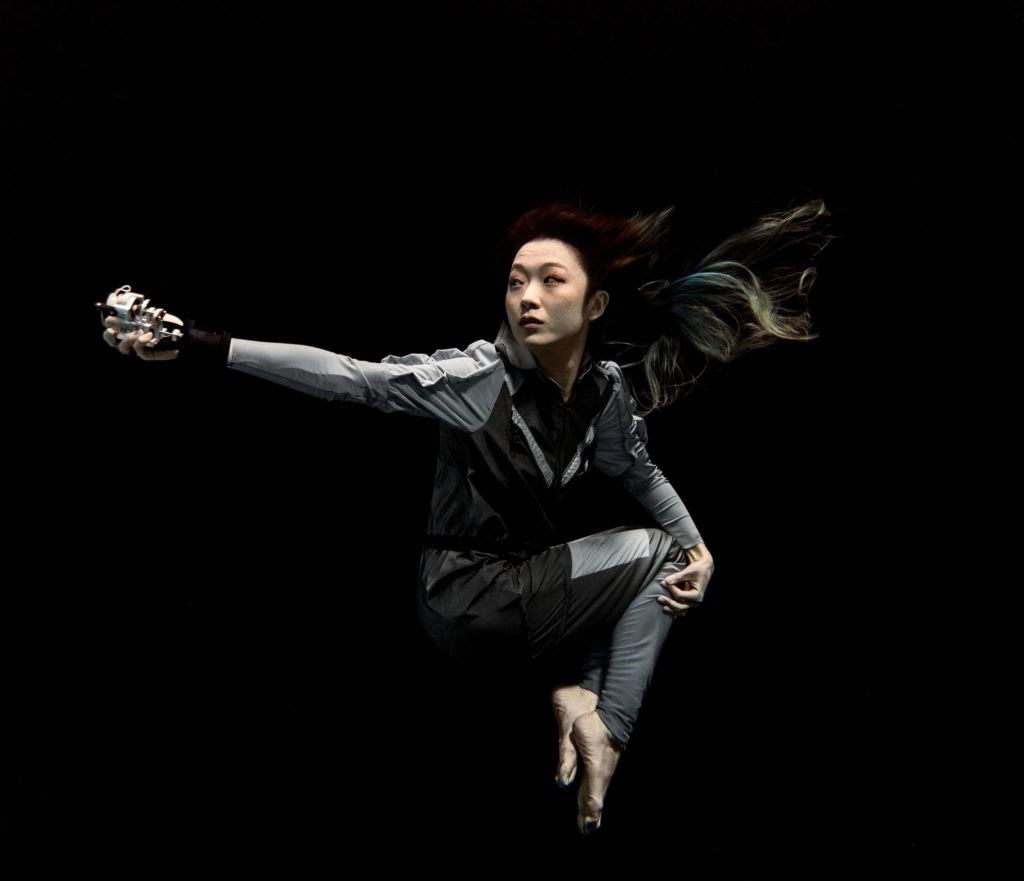ARTISTS:
BETTINA FORGET
Bettina Forget is the Program Director for the SETI Institute’s Artist in Residency Program. Forget is a gallerist, art educator, researcher, and visual artist. Her creative work explores astronomy, science fiction, and feminism, and she has exhibited her projects in both artistic and scientific institutions. In her role as professor, Ph.D. candidate, and Public Scholar at Concordia University in Montreal, Canada, she examines the re-contextualization of art and science, and how trans-disciplinary education may disrupt gender stereotypes. Dovetailing with her artistic and academic pursuits, Forget owns and runs Visual Voice Gallery, which presents exhibitions that create a dialogue between art and science. Forget joined the SETI AIR program in 2016 as Researcher in Residence, and has also been responsible for coordinating the program’s archive at the Nevada Museum of Art’s Center for Art + Environment.
XIN LIU
Xin Liu is an artist and engineer. She is currently the Arts Curator in Space Exploration Initiative in MIT Media Lab, a member of New INC in New Museum and a resident in Queens Museum Artist Studio program. She is recipient of numerous awards and residencies, including Forbes 30 under 30 Asia, the Van Lier Fellowship from Museum of Arts and Design, Sundance New Frontier Story Lab, Huayu Youth Award Finalist, Creative Capital On Our Radar, inaugural Europe ARTificial Intelligence Lab residency, inaugural ONX studio program (founded by New Museum and Onassis NY) and Pioneer Works Tech Residency. She has been commissioned by institutions including Abandon Normal Devices Festival (UK), Ars Electronica (Austria), Media Art Xploration Festival (US) and Onassis Foundation Enter Program. She is an advisor for LACMA Art+Tech Lab and a faculty member at The Terraforming, a new research program at Strelka Institute in 2020. As a researcher, Liu has worked at Microsoft Research NYC and Asia, and Google ATAP. Liu is a SETI Institute Artist in Residence (2021-22).
KIMBERLEY WARREN-RHODES
Kimberley Warren-Rhodes is a research scientist at NASA and the SETI Institute specializing in planetary desert ecology and astrobiology. She has pioneered the study of some of the harshest and most remote deserts on Earth—from the mountainous red dunes in Namibia to the fabled deserts of the ancient Silk Road. As one of the first scientists to apply traditional landscape ecology to the study of extreme environments and their microbial inhabitants, her ground-breaking work established the limit for photosynthetic life on this planet. She dreams of exploring the deserts of Mars for similar signatures of extant or extinct bacterial life. Her ultimate goal is to leverage the deep ecological knowledge and hone logistical field survey methods garnered from the long-term study of microbial communities—how they structure themselves, adapt and engineer their own environments and habitats, i.e., ‘coevolution’ (Cabrol, 2018)—to the ecological mapping and search for biosignatures on Mars and other planets. She especially enjoys working with multi-disciplinary and multi-cultural teams—seeing her role as ecologist as one of distilling and harmonizing the individual biological, geological, chemical and physical sciences into the larger cohesive ecological picture of life in its environment. Warren-Rhodes has received multiple awards for science and engineering from the National Science Foundation, MacArthur Foundation, NASA (ASTEP), UC Berkeley and Stanford University, and National Research Council, including as science or field ecology PI and Co-I on Exploring Extremophiles in the Taklimakan Desert, Life in the Atacama (2000-2003 & 2003-2006), Subsurface Life in the Atacama (2011-2015), and SETI Institute NASA Astrobiology Changing Planetary Environments and Fingerprints of Life (2105-present) projects.

